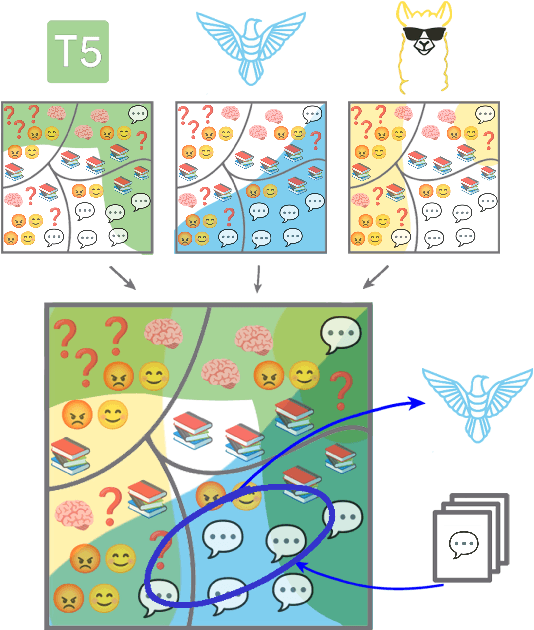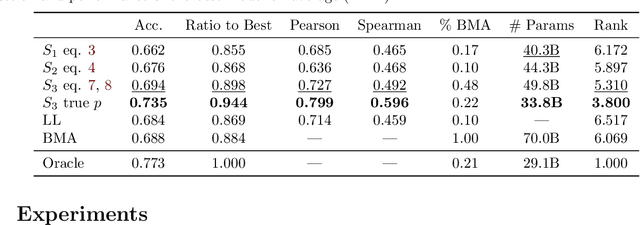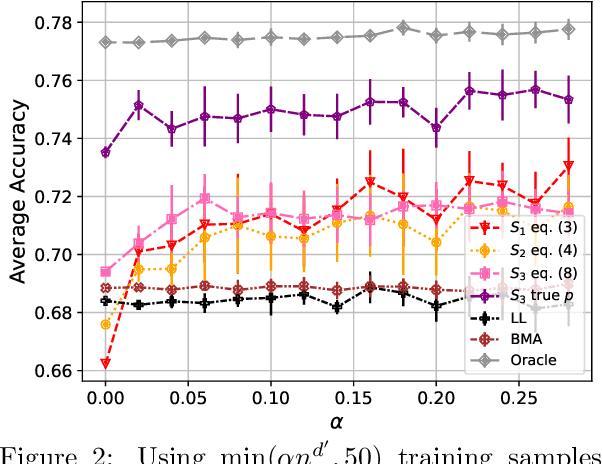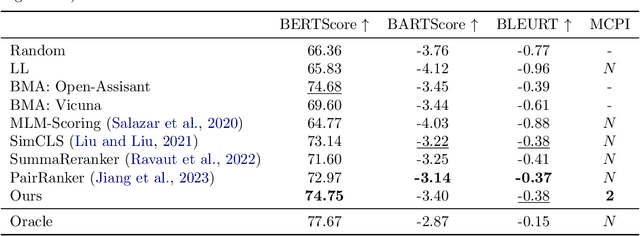Mírian Silva
CARROT: A Cost Aware Rate Optimal Router
Feb 05, 2025



Abstract:With the rapid growth in the number of Large Language Models (LLMs), there has been a recent interest in LLM routing, or directing queries to the cheapest LLM that can deliver a suitable response. Following this line of work, we introduce CARROT, a Cost AwaRe Rate Optimal rouTer that can select models based on any desired trade-off between performance and cost. Given a query, CARROT selects a model based on estimates of models' cost and performance. Its simplicity lends CARROT computational efficiency, while our theoretical analysis demonstrates minimax rate-optimality in its routing performance. Alongside CARROT, we also introduce the Smart Price-aware Routing (SPROUT) dataset to facilitate routing on a wide spectrum of queries with the latest state-of-the-art LLMs. Using SPROUT and prior benchmarks such as Routerbench and open-LLM-leaderboard-v2 we empirically validate CARROT's performance against several alternative routers.
Efficient multi-prompt evaluation of LLMs
May 27, 2024



Abstract:Most popular benchmarks for comparing LLMs rely on a limited set of prompt templates, which may not fully capture the LLMs' abilities and can affect the reproducibility of results on leaderboards. Many recent works empirically verify prompt sensitivity and advocate for changes in LLM evaluation. In this paper, we consider the problem of estimating the performance distribution across many prompt variants instead of finding a single prompt to evaluate with. We introduce PromptEval, a method for estimating performance across a large set of prompts borrowing strength across prompts and examples to produce accurate estimates under practical evaluation budgets. The resulting distribution can be used to obtain performance quantiles to construct various robust performance metrics (e.g., top 95% quantile or median). We prove that PromptEval consistently estimates the performance distribution and demonstrate its efficacy empirically on three prominent LLM benchmarks: MMLU, BIG-bench Hard, and LMentry. For example, PromptEval can accurately estimate performance quantiles across 100 prompt templates on MMLU with a budget equivalent to two single-prompt evaluations. Our code and data can be found at https://github.com/felipemaiapolo/prompt-eval.
Large Language Model Routing with Benchmark Datasets
Sep 27, 2023



Abstract:There is a rapidly growing number of open-source Large Language Models (LLMs) and benchmark datasets to compare them. While some models dominate these benchmarks, no single model typically achieves the best accuracy in all tasks and use cases. In this work, we address the challenge of selecting the best LLM out of a collection of models for new tasks. We propose a new formulation for the problem, in which benchmark datasets are repurposed to learn a "router" model for this LLM selection, and we show that this problem can be reduced to a collection of binary classification tasks. We demonstrate the utility and limitations of learning model routers from various benchmark datasets, where we consistently improve performance upon using any single model for all tasks.
 Add to Chrome
Add to Chrome Add to Firefox
Add to Firefox Add to Edge
Add to Edge